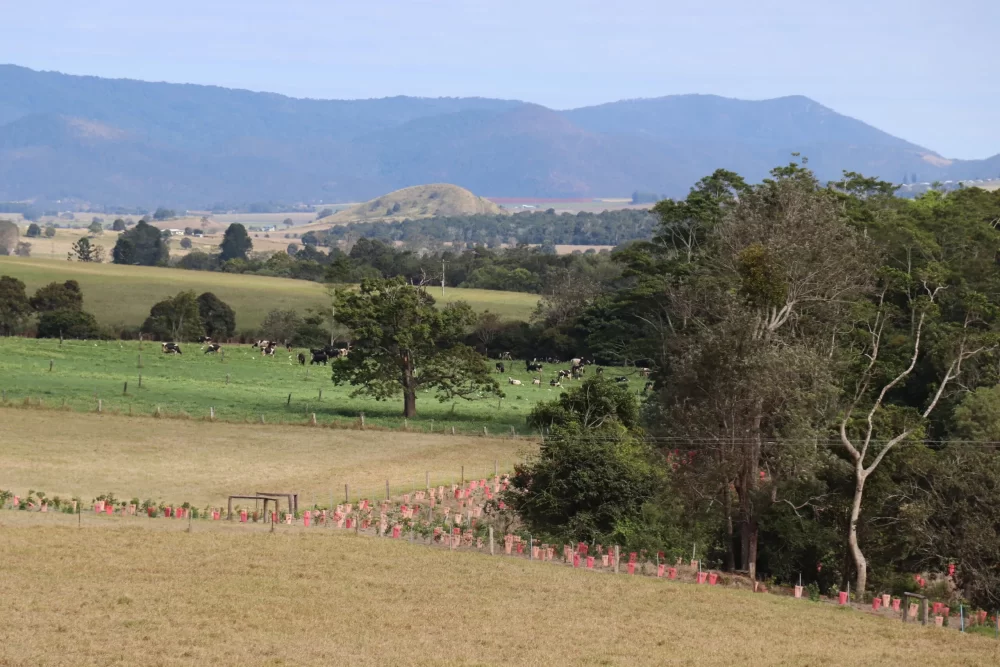IN THE wave of environmental legislation dominating discussions in Canberra, the Federal Government is proposing a new scheme that will allow producers sell certificates attached to biodiversity conservation work.
Biodiversity credits were proposed by previous agriculture minister David Littleproud last year and a similar system, known as the nature repair market, has been proposed by the Labor Government. Submissions on the bill closed earlier this month.
The idea is to recognise landholders who restore or manage local habitat and grant them biodiversity certificates which can then be sold to other parties – making it easier for companies and others to invest in nature repair.
The appetite from corporates to pay for biodiversity outcomes seems to be high – with many companies setting “natural capital” goals. Agricultural investor and Macdoch executive chair Alasdair Macleod eloquently summed up the demand at last month’s Wilmot field days.
“You probably don’t call it ‘natural capital’ because you’re much more likely to talk about pasture and trees, soil and water,” he said,
“And you’re much more likely to talk about the things you are already doing, or plan to do, to improve all these valuable resources.
“But in Collins St or Pitt St, this is called ‘natural capital’. And suddenly the financial world wants to understand all about it.”
More clarity needed on the scheme
Cowell Clarke director and agribusiness lawyer Sam Richardson said like carbon and renewable energy schemes, the nature repair market was likely to present some opportunities to landowners. He said the government needed to work out how the certificates will work in a marketplace for the scheme to be successful.
“Each project is going to be different, each landholding is going to be different, you will have different sized projects and quantifying the value of them is going to be hard when there is only one certificate per project,” Mr Richardson said.
“If you compare it to carbon projects, while there been discussions in recent years about some projects being more reputable than others – you have a market for each tonne of carbon you save. This is an area the government needs to provide more clarity on.”
Early drafts of the nature repair legislation appear that is being designed to compliment the carbon market. Mr Richardson said landowners looking to start a carbon farming project, should consider some of the implications it may have on a potential nature repair project.
“Looking at some of the current carbon contracts, they are assigned to a certain area of a property, often to the exclusion of other activities like primary production.
“Although the government intention is to have the two markets working hand-in-hand, there still could be some restrictions in the contracts.
“I would advise farmers looking at starting a carbon project now, with a nature repair project in mind, to make sure the carbon agreements have flexibility – dialogue with the service provider may well assist with that and lawyers can also help.”
Mr Richardson has acted for many producers hosting renewable energy projects. He said renewable energy projects will often take away the ability to enter the carbon market, with the nature repair market likely to be the same.
“If we look at wind farms, solar farms and the infrastructure involved, there is going to be an impact on vegetation which could be at odds with a carbon or nature repair project,” he said.
“These are long-term arrangements, so having that foresight and thinking about how certain projects will run side-by-side, which is where the advisors can help.”
Many are sceptical
With other biodiversity schemes proposed in the past, some are sceptical of its viability. University of Melbourne professor Yung En Chee penned an article in The Conversation calling for more sticks and less carrots on biodiversity.
“If they are to succeed, these kinds of schemes must be legitimate. To make these credits worthy of investment and tradeable, you need a governance framework, measurement systems, certification, registration, contracting, trading, monitoring, reporting, accounting, auditing, and a bureaucracy for administering, consulting and advising on all of it.
“Turning nature around is hard. We’ve left it late. But markets are not the answer – they’re a band-aid solution. Time to rip it off.”
The Federal Government says it is taking submissions on board and will inform further development of the market.

